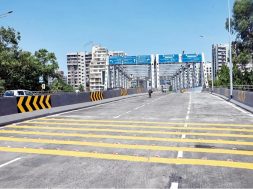According to a report ‘India Real Estate Forecast 2012 Across Asset Classes’ released by real estate consultants Jones Lang LaSalle, the residential as well as commercial real estate market sentiments in India to remain cautious in the coming year
As the economy shows signs of decreasing GDP growth rate, the Indian real estate industry faces its own share of concerns. Real estate developers are reeling under high debt and FDI inflows have also slowed down. The recent increase in home loan interest rates is expected to dampen the sales even further. Amidst these macro-economic conditions, Indian real estate asset classes across the prime cities of India have seen mixed sentiments. Residential sales remained slow in most of these cities in 2011. Residential project launches also showed a marked slowdown by 3rd quarter of 2011.The demand for office and retail space leasing remained healthy in most of the cities.
THE YEAR THAT WASCommercial Real EstateLeasing activity in the office space realm remained healthy across the major cities in 2011. These cities also saw strong pre-leasing activity in buildings under construction. Occupiers mostly expanded their renewed leases or consolidated office spaces, with an emphasis on the secondary and suburban sub-markets of the prime cities instead of the central business districts because of ample availability of leasable spaces in these areas.
Special Economic Zone (SEZ) spaces saw stronger demand as compared to non–SEZ office spaces in 2011. Due to the prevailing uncertainty regarding the global economy, a marginal slowdown in leasing activity was seen in 3rd quarter of 2011. Office space rents and capital values also increased marginally in some sub-markets in 2011, since vacancy levels remained range-bound.
Retail Real EstateThe retail sector sentiments remained buoyant as retailers continued to expand into both high streets and malls. However, high streets witnessed stronger leasing activity across the prime cities in India. Major retailers continued to expand decisively – not only into the prime cities, but also smaller cities and towns. Malls are also witnessing healthy leasing activity, with pre-commitments in malls under construction remaining healthy. However the demand remained polarized to selected good malls.
Delhi NCR saw the strongest absorption rate, while Bangalore showed strength in high street leasing. Rents and capital values increased nominally in quite a few sub-markets of the prime cities. The prime retail sub-markets of Delhi and Mumbai saw a rise in capital values. The suburban sub markets of Bangalore and Mumbai also displayed a rise in rental values in the light of strong demand from retailers.
Residential Real EstateThe residential real estate market was sluggish in 2011. Sales dropped in the prime cities of India, except in Bangalore, which saw healthy sales. In Delhi NCR, the Noida sub-market had led absorption over the past 11 quarters but witnessed a decrease in 2011.
Cautious buyer sentiment prevailed due to the adverse impact of the prevailing macro-economic factors such as rising interest rates and surging inflation. The spate of hikes in interest rates by the Reserve Bank of India (12 times over the past 18 months) led to a steep rise in the EMIs of home loan borrowers. While rising home loan rates have exerted pressure on buyers, developers have been constrained by the rising costs of construction and debt. We are now looking at a scenario where both developers and buyers are impacted by adverse macro-economic factors.
Rising input costs caused developers to slow down on construction and new launches. Most of new launches in 2011 were in the mid-income and budget homes segment. Capital values increased to a limited extent. Although brochure prices either remained stable or increased marginally in select projects, developers offered discounts on their prices or other freebies during the festive seasons to improve sales.
FORECAST FOR 2012Commercial Real EstateIn 2012, several IT companies are looking to pre-lease office space to take advantage of the favourable commercial terms currently being proposed by commercial office space developers. Demand is expected to remain stable. However, the office space supply is expected to outweigh demand in most prime cities of India. Corporate expansions are likely to decrease due to the uncertainties in the global economic situation, which will have an impact on business budgets for next year.
Demand will derive from consolidation in and relocation to Special Economic Zones by large IT occupiers, who will seek to reduce costs and avail of the related tax incentives. Commercial office space rents and capital values are expected to increase across all cities, albeit marginally.
Commercial office space investor sentiments will remain cautious in the year ahead. The suburban sub-markets will continue to be preferred by tenants, especially in the case of the IT sector, due to the cost advantage and availability of substantial supply.
Retail Real EstateIn 2012, enquiries for quality retail space are likely to remain robust as major Indian retailers are seeking to implement their expansion plans in the prime cities as well as select Tier II and Tier III cities. FDI in multi brand real estate, when finally permitted, is expected to catalyse a lot of demand from international retailers. That said international luxury brands will restrict their growth plans to Mumbai, Delhi and Bangalore.
Both large-format and vanilla retailers are expected to chase deals in under-construction projects that provide good branding and business potential. Transactions will be oriented towards the revenue-sharing model rather than straightforward leasing deals. High streets will continue to give strong competition to malls, and there will be significant high street in 2012. Demand polarisation towards selected malls will continue, and this will keep overall vacancy levels high – several poorly-designed and unfavourably located malls will become operational at low occupancy levels in 2012.
Residential Real EstateBecause of the prevailing uncertainties on the global market and the likelihood of further interest rate hikes by the RBI in the early part of 2012, sentiments on the residential market will remain cautious over the short term. The absorption rate – meaning the ratio of sales over inventory in the market – is likely to be low, and the incidence of new launches will decline. Rise in capital values will be marginal because of low sales.
Project-specific price increases can be expected across all sub-markets – this pertains specially to projects that are being delivered or are nearing completion. The mid-end and affordable housing segments will record healthy appreciation in capital values in the short term from a low base. We expect these trends to continue during 4th quarter of 2011 and 1st half of 2012.
Overall macro-economic conditions will keep investor sentiments at cautious levels, both in terms of FDI and FII. FDI inflows, which are currently muted because of the slowdown in the country’s GDP growth rate, will probably remain sluggish over the short term. However, as the Indian economy continues to show its resilience in 2012, foreign investors will gain in confidence and India will become attractive among competing investment destinations.
Meanwhile, residential developers will continue to tackle the current liquidity crunch due to high interest rates and slow sales. We will see a slowdown in construction activity for the time being. However, as demand improves, improving sales will benefit developers who will focus on execution of their on-going project portfolios.
Cookie Consent
We use cookies to personalize your experience. By continuing to visit this website you agree to our Terms & Conditions, Privacy Policy and Cookie Policy.









